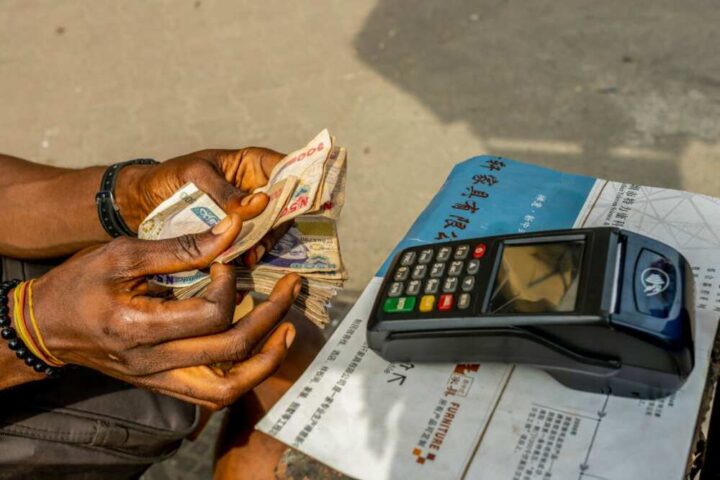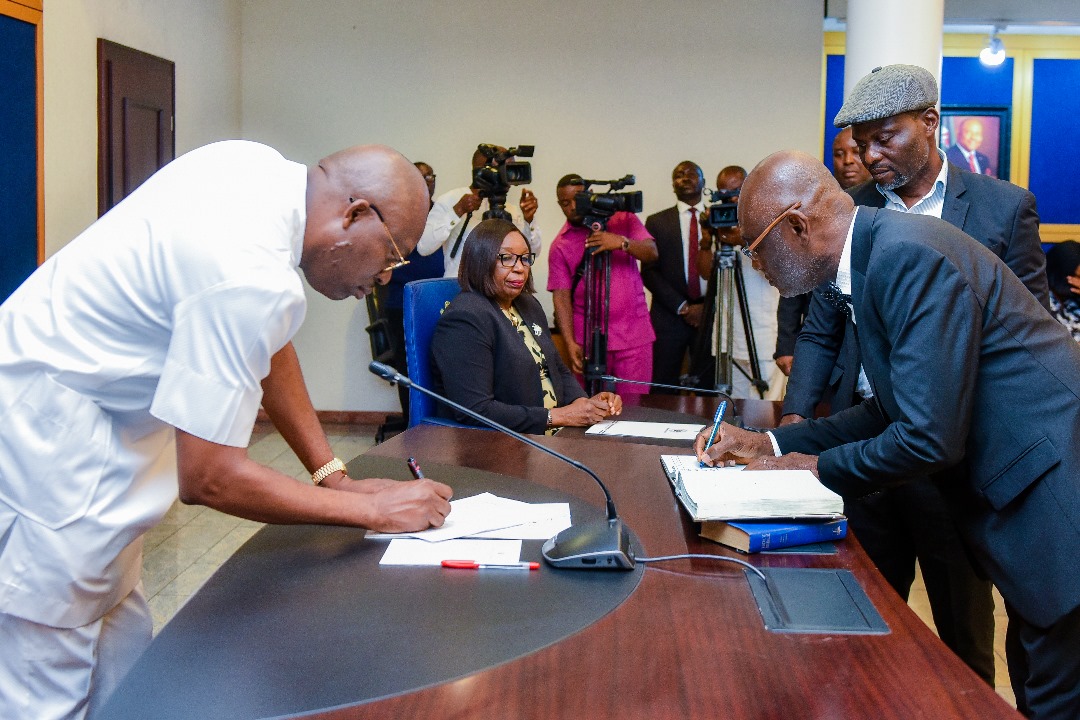The Central Bank of Nigeria (CBN) recently announced a 0.5% cybercrime levy on all electronic transactions, casting a long shadow over Nigeria’s hard-fought progress in financial inclusion and the CBN’s own ambitious goal of achieving 95% financial inclusion by 2024.
The announcement has since been met with public outcry. The House of Representatives has stepped in to halt its implementation, and President Tinubu has called for a suspension of the levy. These interventions provides us with a crucial opportunity that must not be missed. We should now step back to address the underlying issues and identify more efficient solutions that could achieve the goal of improving cybersecurity without reversing recent progress made with financial inclusion by disproportionately placing more burdens on low-income users and the unbanked, who are already struggling to access financial services.
The cybersecurity levy was originally a provision in the 2015 Cybercrimes Act and focused on businesses deemed financially capable, such as banks, telcos, and large corporations. The recent 2024 amendments were meant to clarify the vagueness regarding the implementation of the 2015 Act but have only led to further confusion. The CBN’s chosen method of implementing the cybersecurity levy raises concerns about its commitment to its stated goal of promoting financial inclusion and reflects its lack of sensitivity to the plight of citizens in an economy grappling with double-digit inflation.
Formal financial inclusion in Nigeria has made significant strides, from 56% in 2020 to 64% in 2023. This progress is commendable but fragile. The cybersecurity levy the CBN proposed meant that every transaction, no matter how small, would incur a 0.5% fee, eating into the already thin profit margins of micro and small businesses. This potentially pushes everyday Nigerians back to inefficient and unsafe cash-based transactions and sets back digital financial inclusion significantly. While the CBN claimed the levy was necessary to improve cybersecurity, its benefits to combating cybercrime were questionable; but the harm to millions of Nigerians striving to enter the formal financial system is clear and demonstrable.
Advertisement
Cybersecurity is a complex challenge that requires a multifaceted approach. A blanket levy on transactions was never the most efficient or equitable way to deal with cybersecurity concerns. There are potentially more effective solutions, such as holding financial institutions directly accountable for cybersecurity breaches, which would incentivise institutions to invest in robust cybersecurity infrastructure and enforce stronger protocols to prevent cyberattacks. The point is that it is possible to achieve the same objective without jeopardising the recent gains in financial inclusion or shifting the burden on hapless citizens.
The projected revenue from this levy is substantial, with NIBSS reporting a ₦600 trillion volume in electronic payment transactions in Nigeria in 2023. The CBN however provided no clarity on how this remittance to the national cybersecurity fund would be allocated and used for cybersecurity improvements or how it would translate into tangible benefits for everyday Nigerians using digital financial services. This lack of transparency raises concerns. Nigerians deserve to know exactly how their hard-earned money, intended to be squeezed from every digital transaction, would be utilised. If it must return to this policy at any time in the future, the CBN should be required to provide a clear breakdown of how the funds will benefit the citizens, including specific initiatives and budgets. This is the only way to ensure accountability and reassure the public about the responsible use of their funds.
The CBN exempted certain types of transactions from the levy. But these exemptions largely applied to large-value transactions like government payments, salary disbursements, and loan repayments, which were unlikely to have been significantly impacted by the 0.5% levy in the first place. Other exemptions regarding intra-account and intra-bank transactions, savings, and deposits still did not exclude the numerous small, everyday transactions that are the lifeblood of low-income earners. As with most financial policies such as this, the actual burden falls on the shoulders of the most vulnerable segments of the society who can least afford it, while giving comfort to those who are already comfortable.
Nigeria cannot afford to take a step back in its financial inclusion journey. What we need is a clear strategy that fosters innovation and builds trust in the digital financial system, not one that excludes millions of Nigerians from the economic empowerment offered by financial inclusion. The recent suspension offers a window of opportunity. The CBN should use this time to explore alternative policies for dealing with cybercrime that effectively address the root causes within the financial sector rather than discourage people, particularly the unbanked or underbanked, from using digital financial services, thereby pushing them back towards cash. The future of finance is digital, and Nigeria must embrace this future with policies that encourage and empower its citizens, not that would scare them away or further alienates them. Financial inclusion should be the cornerstone of every CBN policy and should not be hindered by short-sighted measures that undermine the very progress it claims to protect.
Advertisement
Abdullahi is a Co-founder and Product Lead at Covenda AI and an advocate for digital and financial inclusion.
Views expressed by contributors are strictly personal and not of TheCable.
Add a comment






